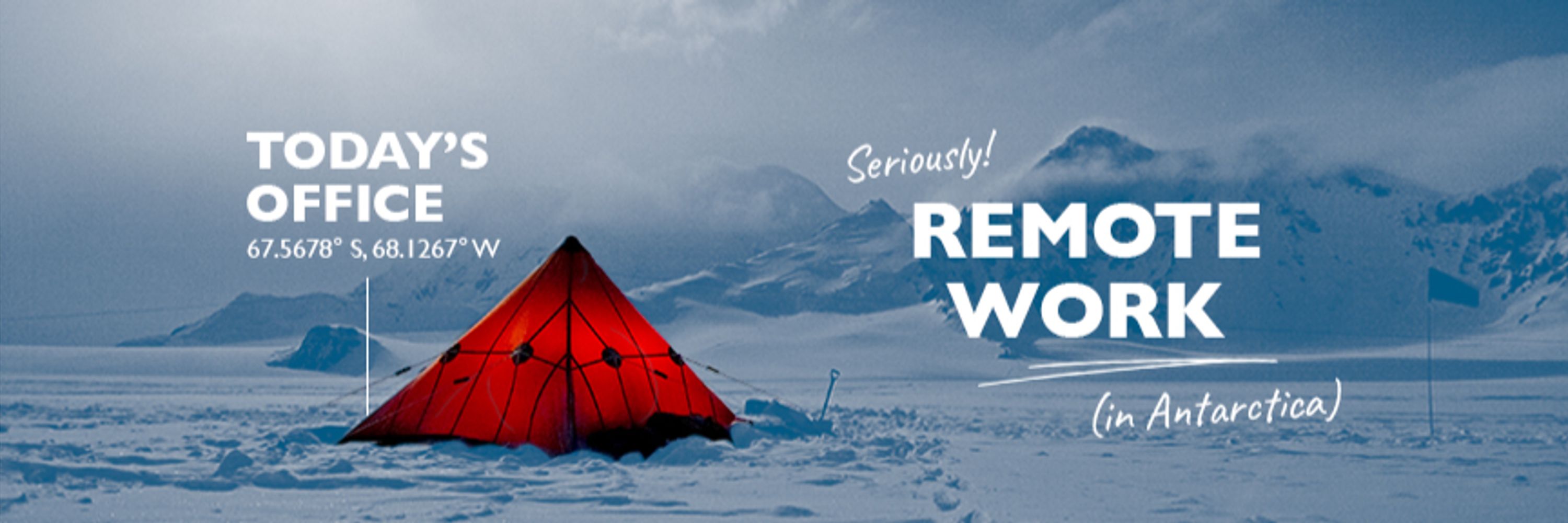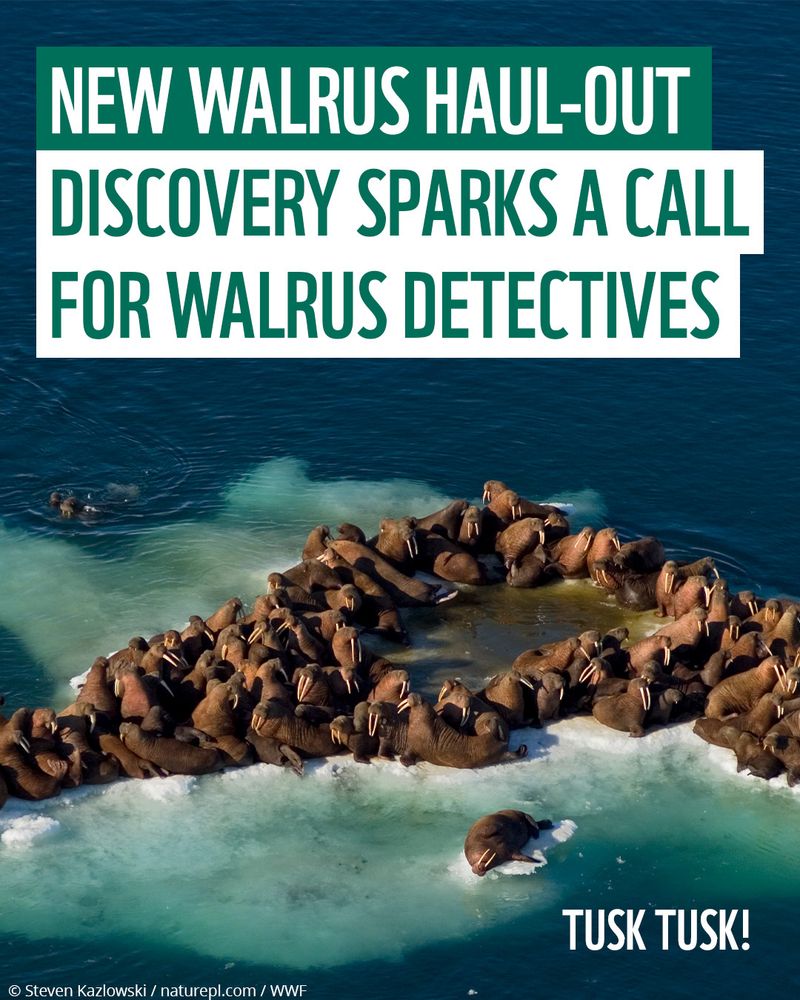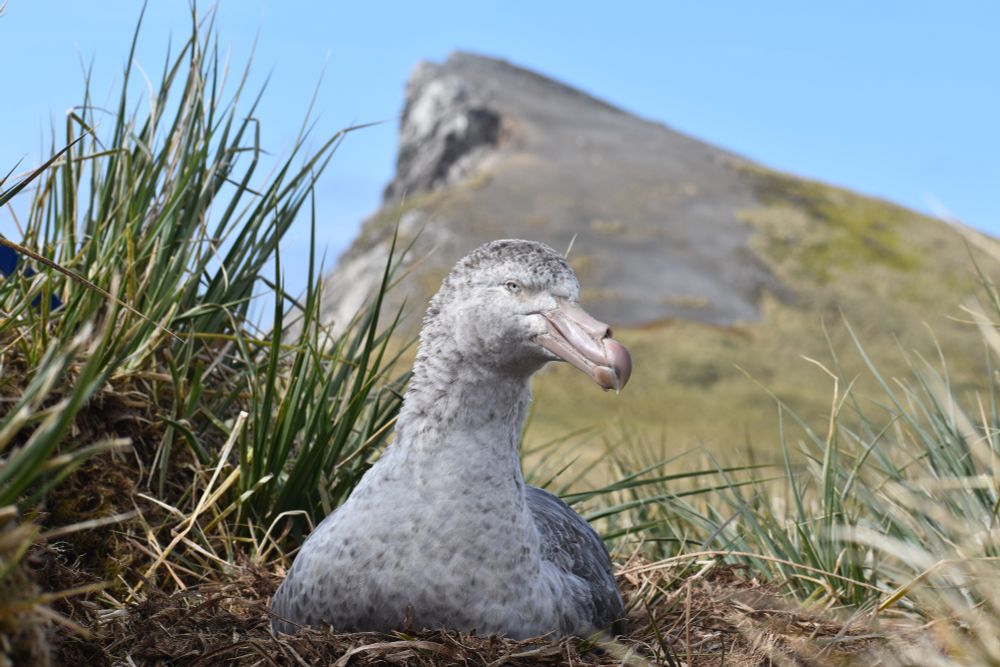
Looking for a seriously remote job? https://bas.ac.uk/vacancies
We're the UK's polar research institute. We do climate and ecosystems science in Earth's frozen places, because changes there affect all of us.
As we say at British Antarctic Survey: what happens in Antarctica doesn't stay in Antarctica ⬇️
She discusses the IceNet project which uses AI to predict sea ice 3 months ahead, helping protect caribou migration routes from ships. 🦌
📺 watch here: https://tinyurl.com/yk7y82hs

She discusses the IceNet project which uses AI to predict sea ice 3 months ahead, helping protect caribou migration routes from ships. 🦌
📺 watch here: https://tinyurl.com/yk7y82hs
Will joined British Antarctic Survey in 2008 as 3rd Officer at the age of 19. He worked his way up, and did his first Antarctic season as Captain back in 2015.

Will joined British Antarctic Survey in 2008 as 3rd Officer at the age of 19. He worked his way up, and did his first Antarctic season as Captain back in 2015.
This is the moment we branded up the new Discovery Building. It's our new science and operations building at Rothera Research Station, Antarctica.
Discovery replaces several buildings which faithfully stood against elements during the 50 years of Rothera's history.
📸 Eliot Perez

This is the moment we branded up the new Discovery Building. It's our new science and operations building at Rothera Research Station, Antarctica.
Discovery replaces several buildings which faithfully stood against elements during the 50 years of Rothera's history.
📸 Eliot Perez
Ozone hole discovery anniversary – We marked 40 years since BAS scientists Joe Farman, Brian Gardiner and Jon Shanklin discovered the ozone hole in 1985. Their findings led to the Montreal Protocol which prevented an additional 2.5°C of warming.

Ozone hole discovery anniversary – We marked 40 years since BAS scientists Joe Farman, Brian Gardiner and Jon Shanklin discovered the ozone hole in 1985. Their findings led to the Montreal Protocol which prevented an additional 2.5°C of warming.
From now until 11 January, families can explore Arctic Adventure – an immersive experience where snow, ice and imagination collide.
🎟️ Book tickets: https://mymk.cc/events/the-arctic-adventure

From now until 11 January, families can explore Arctic Adventure – an immersive experience where snow, ice and imagination collide.
🎟️ Book tickets: https://mymk.cc/events/the-arctic-adventure
Extreme logistics – The RRS Sir David Attenborough completed an epic operation 600km from the nearest station, collecting kit and establishing logistics ‘hubs’ in the middle of nowhere!

Extreme logistics – The RRS Sir David Attenborough completed an epic operation 600km from the nearest station, collecting kit and establishing logistics ‘hubs’ in the middle of nowhere!
Tune in to Lloyd Peck, marine physiologist at British Antarctic Survey, on the Christmas special of The Infinite Monkey Cage.
🎧Listen here: https://www.bbc.co.uk/programmes/b00snr0w


Tune in to Lloyd Peck, marine physiologist at British Antarctic Survey, on the Christmas special of The Infinite Monkey Cage.
🎧Listen here: https://www.bbc.co.uk/programmes/b00snr0w
They're the team behind Christmas dinner at Halley Research Station!
We asked them what's on the menu? 🍽️ What's the best bit of a Christmas dinner? 🥧 And what does the big day actually look like in Antarctica? ⛷️
They're the team behind Christmas dinner at Halley Research Station!
We asked them what's on the menu? 🍽️ What's the best bit of a Christmas dinner? 🥧 And what does the big day actually look like in Antarctica? ⛷️



Station Doctor, Dani Hawarden & Station Leader, Dan McKenzie, discuss festive traditions at Halley Research Station in this special Christmas episode of Iceworld.
🎧 Listen on your preferred podcast app.
Station Doctor, Dani Hawarden & Station Leader, Dan McKenzie, discuss festive traditions at Halley Research Station in this special Christmas episode of Iceworld.
🎧 Listen on your preferred podcast app.
New research by Dr Joanna Zanker reveals how young mackerel icefish around South Georgia are at the mercy of changing waters...
🧵 1/5
New research by Dr Joanna Zanker reveals how young mackerel icefish around South Georgia are at the mercy of changing waters...
🧵 1/5
Captured during polar-night surveys of ocean conditions near Antarctic Peninsula glaciers.
royalsociety.org/journals/pub...

We are thrilled to partner with the Norwegian Polar Institute + Alfred Wegner Institute on logistics.
An NPI operated ship will resupply our Halley VI ice shelf research station for the next 10 years - as we share costs, carbon impact, and ice shelf expertise.

We are thrilled to partner with the Norwegian Polar Institute + Alfred Wegner Institute on logistics.
An NPI operated ship will resupply our Halley VI ice shelf research station for the next 10 years - as we share costs, carbon impact, and ice shelf expertise.
This team in the South Orkney Islands research seabirds and terrestrial ecology.
They were dropped off by RRS Sir David Attenborough - along with a band of helpers who cleared the snow, hauled in cargo, and helped bring power and water online 💙



This team in the South Orkney Islands research seabirds and terrestrial ecology.
They were dropped off by RRS Sir David Attenborough - along with a band of helpers who cleared the snow, hauled in cargo, and helped bring power and water online 💙
In this episode of Iceworld, host Nadia Frontier talks to Emma Pearce about exactly that.
Bonus points if you can tell us how many layers you heard Emma mention!
In this episode of Iceworld, host Nadia Frontier talks to Emma Pearce about exactly that.
Bonus points if you can tell us how many layers you heard Emma mention!
️
Satellite imagery has helped scientists discover a new walrus haul-out site. And it's sparked a call for your help! 📢
To safeguard their future, we urgently need to understand how they’re affected by the climate crisis.👇
www.wwf.org.uk/learn/walrus...

️
Satellite imagery has helped scientists discover a new walrus haul-out site. And it's sparked a call for your help! 📢
To safeguard their future, we urgently need to understand how they’re affected by the climate crisis.👇
www.wwf.org.uk/learn/walrus...
From heatwaves to intense storms, Michelle explains how the continent's 'memory' of extreme events means future impacts are likely to be amplified by past damage.
Listen now: https://tinyurl.com/4e4772yb

From heatwaves to intense storms, Michelle explains how the continent's 'memory' of extreme events means future impacts are likely to be amplified by past damage.
Listen now: https://tinyurl.com/4e4772yb
She hatched there in 1989, making her an impressive 36 years old.
This season, she decided to build her nest next to the path, where the team greet her every day as they go past 🪶

She hatched there in 1989, making her an impressive 36 years old.
This season, she decided to build her nest next to the path, where the team greet her every day as they go past 🪶
All part of modernising our largest research station for the future of polar science 🧊
Image credit: BAM 📷
Read more: www.bas.ac.uk/media-post/2...



All part of modernising our largest research station for the future of polar science 🧊
Image credit: BAM 📷
Read more: www.bas.ac.uk/media-post/2...
Today is a special day in the international polar science and operations community when we celebrate the contributions of our LGBTQ+ colleagues.
Polar science is the ultimate teamwork environment - and making sure everyone feels included and welcome is crucial.

Today is a special day in the international polar science and operations community when we celebrate the contributions of our LGBTQ+ colleagues.
Polar science is the ultimate teamwork environment - and making sure everyone feels included and welcome is crucial.
After a stop at Neumayer, serenaded with a horn farewell, the team reached Halley - only to find one door had reinvented itself as a wall… a wall of snow.
They’re melting it in tea urns for water and slowly getting the station ready for the season.




After a stop at Neumayer, serenaded with a horn farewell, the team reached Halley - only to find one door had reinvented itself as a wall… a wall of snow.
They’re melting it in tea urns for water and slowly getting the station ready for the season.
Her work has transformed understanding of Antarctic ice-shelf melt and future sea-level rise.
She says, “It was a lovely surprise to hear that I'd won this prestigious award."

Her work has transformed understanding of Antarctic ice-shelf melt and future sea-level rise.
She says, “It was a lovely surprise to hear that I'd won this prestigious award."
Here's what we know so far...
📸 Connor Bamford

Here's what we know so far...
📸 Connor Bamford
And does it matter if they do?
These questions are answered by BAS glaciologist Dr Hamish Pritchard in a major new UNESCO report for the UN International Year of Glaciers' Preservation.
Read the report here: https://ow.ly/TFTH50XptZc


And does it matter if they do?
These questions are answered by BAS glaciologist Dr Hamish Pritchard in a major new UNESCO report for the UN International Year of Glaciers' Preservation.
Read the report here: https://ow.ly/TFTH50XptZc
Marine scientists Katie Wells and Rhi Nichol took a moment to capture this serene scene while monitoring elephant seals in South Georgia, near Antarctica.
#WeekendMood
Marine scientists Katie Wells and Rhi Nichol took a moment to capture this serene scene while monitoring elephant seals in South Georgia, near Antarctica.
#WeekendMood

